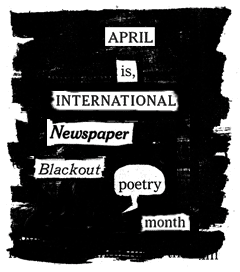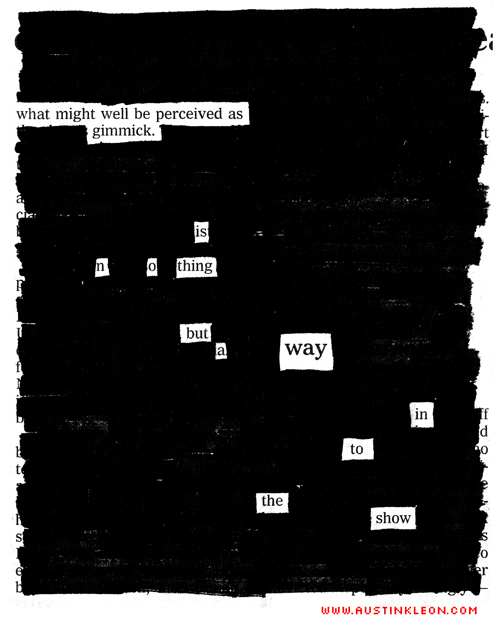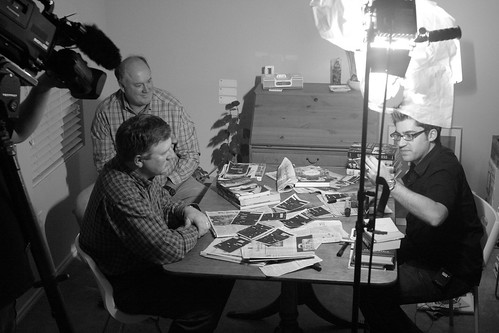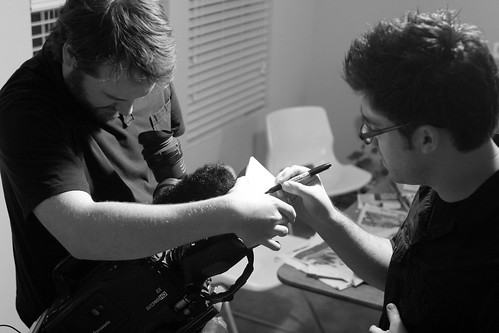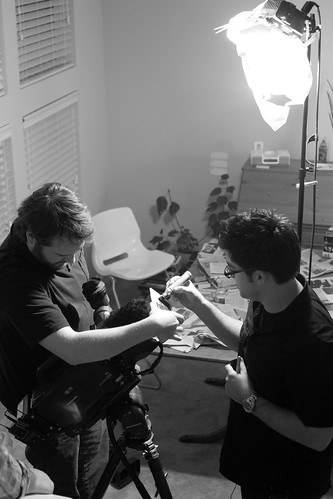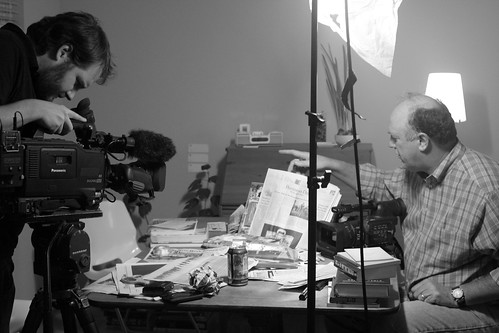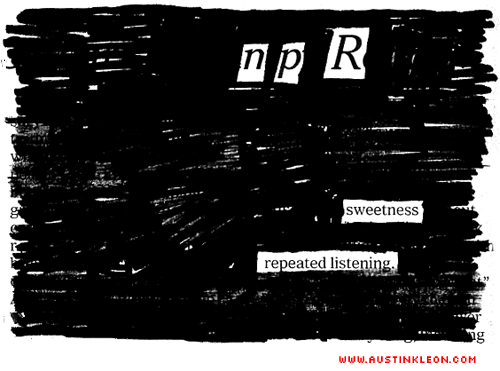The content of this interview I did with Nate Burgos over at Design Feaster might be familiar to anyone who’s read my posts about blogging before, but you might want to take a look anyways.
On why I started a blog:
When you’re a writer in college, you have the ultimate luxury: a captive audience. Your teachers get paid to read your writing and your classmates pay to read your writing. And then, suddenly, you get out of college, and nobody gives a crap anymore. So you start a blog!
On my hatred of computers:
This might be blasphemous for a blogger to say, but I don’t like spending more time in front of a computer screen than I have to. The good stuff comes from your hands and your head. (The cartoonist Lynda Barry says, “In the digital age, don’t forget to use your digits!” A blog is just a delivery system—a way to get eyeballs looking at your stuff (and minds thinking about it).

